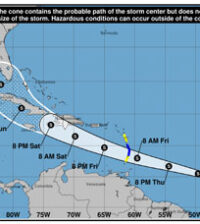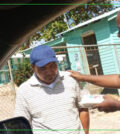- New OAS Ambassador for Belize
- Youth killed another injured
- President of Haiti assassinated; Belize sends condolences
- Tropical Storm Elsa forming
- Toledo top-cop gives pep talk to baseball/softball players
- New CEO for Ministry of Sustainable Development
- Cold front cools things down
- Mike Espat takes Oath of Office
- 2020 Hurricane Season comes to a close
- COVID-19 death toll rises
Suspected case of rabies in cow reported in Toledo
There is a suspected case of rabies in cow being reported in the Toledo district.
The Ministry of Health issued a press advisory on Thursday announcing that the suspected case of bovine rabies was reported on Wednesday in the New Road area of the Toledo district.
The official statement says that both the Ministry of Health and the Belize Agricultural Health Authority (BAHA) are currently engaged in investigating the reported case and are also involved in “treatment of eight exposed persons as part of a proactive response pending confirmation of laboratory result on the sample.”
The Ministry of Health press release notes that there is not confirmed case of bovine rabies as yet and reminds the general public that there are periodic cases of rabies are found to occur due to “active circulation of the rabies virus between the wild, livestock and domestic animals.”
While the suspected case of rabies in cow is investigated, the Ministry of Health is advising the general public to report any animals showing signs of rabies to BAHA or the public health office in their respective districts.
Signs of rabies, according to the official release, include tiredness, fever, vomiting, anorexia, weakness, paralysis, seizures, difficulty breathing, difficulty swallowing, excessive salivation, abnormal behaviour, aggression and self mutilation.”
The Ministry of Health press release lists 6 precautionary measures that the general public can take to combat rabies transmission.
These include: keeping domestic animals, such as dogs and cats, under control; vaccinating dogs and cats against rabies; avoiding wild animals, particularly foxes and wolves and bats; reporting any sightings of strange-acting wild or domestic animals to BAHA, the Ministry of Health or veterinarians; washing any bites or other areas of contact with potentially rabid animals immediately with soap and water; and, immediately going to a health clinic or emergency department for treatment of any animal bites.
Any contact with potentially rabid animals should be reported to public health officials.


















